15 Things That Bother Your Autistic Loved One (That You May Not Even Notice)
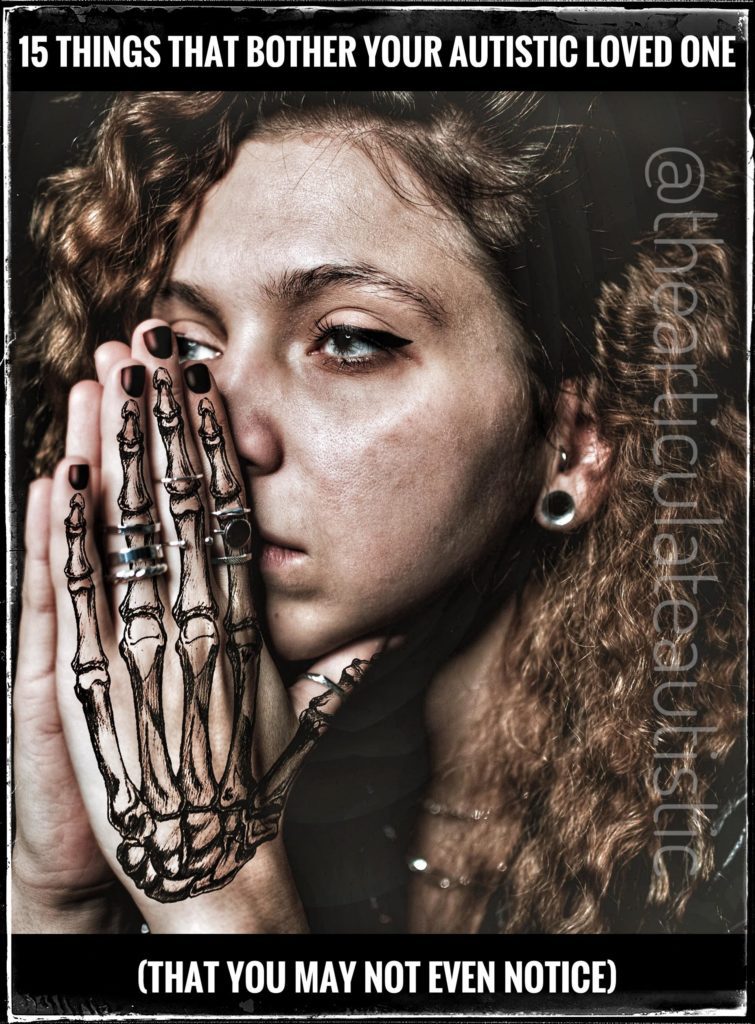
Non-speaking autistic people, especially those without access to alternative means of communication, may struggle painfully with expressing their needs, wants, and experiences of the world around them, which can lead to frequent meltdowns and frustration on both sides.
If you notice your non-speaking autistic loved one is in distress, but you’re at a loss for what could be causing it, this list may help bridge those communication barriers and find the root cause of emotional dysregulation before it escalates.
Angry or Frustrated Energy
I’ve done a few unofficial polls on my Instagram page of late to see how each neurotype responds to yelling. Autistic people have mostly said that they feel a combination of confusion, physical pain, and deep fear, and they were unable to process the words coming from the angry person when being yelled at. Conversely, neurotypical people seemed to experience fear but not confusion or physical pain, and they could process the words coming from the person yelling at them.
However, there seemed to be some further disconnect between NTs and NDs in that NTs stated that their autistic loved ones would often ask them to “stop shouting” when the neurotypical person hadn’t raised their voice.
Here’s the thing, autistic and otherwise neurodivergent people are often incredibly sensitive to energy. This means, if anyone is even feeling frustrated or angry, regardless of whether they are showing it on their face or in their voice, we will know, and it will have the same effect on us as if someone was screaming at the top of their lungs.
If you’ve noticed your autistic loved one shying away when you speak to them, and you can’t figure out why, it could be that although your tone is even, your frustration is coming out in waves of annoyed energy that are smacking your autistic loved one right in the vagus nerve.
Sudden, Loud Noises
For neurotypical people, sudden, loud noises can be triggering, but it seems to be on a whole other level for autistic people. Everyday sounds like motorcycles, cars backfiring, car horns, vacuums, door knocks, doorbells, and phone calls can send an autistic person into an immediate state of panic and a possible meltdown. It may seem like an overreaction to you because you don’t experience these sounds the way we do, but they are as frightening and dysregulating for us as a bomb going off next door would be for you.
I also want to focus more closely on door knocks, doorbells, and ringing phones for a moment, since they are tied to social communication. To an autistic person, they are just another loud and upsetting sound, but since these specific sounds are tied to socializing in NT society, our pained or irritated reaction to them can make us appear rude or anti-social when neither is the case.

Pro Tip: If you want to talk with an autistic person, unless they specify otherwise, send a text, direct message, or email. Let your loved one know you plan to call and then schedule a phone call, so we can emotionally prepare for the social interaction. (Yes, we have to emotionally prepare ourselves for social interaction.) Also, once you get to our house, text that you’re there instead of knocking or ringing the doorbell.
Again, always ask your autistic loved one if this is what they prefer because everyone is different.
Ticking Clocks/Metronome

The sound of a ticking clock or a metronome can trigger anxiety, sensory overload, and/or meltdowns. If your autistic loved one is non-speaking, they may be unable to express what’s bothering them, so if there’s a ticking clock or metronome around, get out of the room or get rid of the clock/metronome to see if that helps.
Chewing, Swallowing, and Other Glurpy Noises

Many autistic and otherwise neurodivergent people have misophonia. This is when certain sounds trigger a fight-or-flight response. Offensive sounds can include chewing, swallowing, licking, tooth sucking, snoring, and other mouth noises. If your autistic loved one seems to struggle during mealtimes (chewing and swallowing) or around dogs (licking sounds), misophonia could be the reason why.
Small Talk
Small talk is something that comes up a lot in discussions about what bothers autistic people.
While I’ve come to understand that small talk has an important purpose amongst neurotypicals, it can still be difficult for me to engage in it, let alone enjoy it. My belief is that although we don’t intuitively grasp the purpose of it, I think we somehow know that we are being scrutinized by our conversation partner, and it makes us very uncomfortable.

For neurotypical people, it’s what’s not being said that’s important during small talk, but for autistic people, the words are most important, so the disconnect can be very confusing because neurotypical people are both looking for and responding to facial expressions and body language (or a lack of those things, as is the case with many autistics) while autistic people are taking the words literally and responding to them, not even seeing the non-verbal social cues.
This can make small talk very confusing and disorienting for autistic people. I also believe it’s one of the many reasons autistic people might push for a closer friendship right away. Small talk is anxiety-inducing for us, so we’d rather skip past it and go straight to the deep stuff, where we feel comfortable. Unfortunately, neurotypical people often don’t feel comfortable with this level of intimacy unless there is a strong bond that has been established over time.
It’s just frustrating all around.
White Lies
This is right up there with small talk. White lies, while a necessary part of social communication in the neurotypical world, can be very confusing for autistic people. Again, autistic people are literal and factual. When asked a question, we answer honestly, and we don’t see anything wrong with this until we get repeated unpleasant reactions from others in different social situations.
“Do you like my new dress?”

When asking this question, a neurotypical person may be looking for validation of how they already feel about the dress, and another neurotypical person will know that and respond accordingly.
However, an autistic person will take the question literally, and, if we don’t like the dress, we’ll say we don’t because we don’t feel comfortable lying, and we don’t know that you’re looking for others to lie (validate your existing feelings about the dress) to you by asking the question, so the entire meaning is missed, and an awkward social encounter ensues.
Talking “Around” an Issue
This is another thing that drives autistic people up a wall. Since we are so literal and factual, we really appreciate bluntness. In fact, we need people to be blunt and direct with us so we understand the reasons for their emotional reactions, as well as what’s expected of us. When the neurotypical people around us aren’t blunt, we often don’t understand the hidden meaning behind their words, which causes awkward and sometimes traumatizing social encounters.
One, autistic people are not good at talking around an issue, so we’ll just be blunt and direct. Two, since blunt and direct is what we need in order to avoid awkward social encounters, when the NT people around us “talk in code”, they end up being frustrated with us because we’re not “getting it”.
Certain Textures
There are certain textures that you, as a neurotypical person, would never think twice about that, for us, can feel like being dropped naked into a mucus-soaked vat of slugs.
Jaime A. Heidel – The Articulate Autistic
If your autistic loved one has a visceral response to certain textures, they are not over-reacting, whatever it is touching them makes them want to climb out of their skin!
Certain textures that bother me are my dry hands on a dry towel, corduroy, wool, lace, seams, and tags. There are hundreds of thousands of textures to choose from, and I’m sure there are more that bother me, but what’s important is that if your autistic loved one avoids certain textures, do not force them to endure them.
We don’t get used to sensory triggers, we just learn to disassociate from them, and that’s not healthy.
Breaking Rules
For autistic people, rules are written in stone. We are very literal and black-and-white thinkers, so we don’t see rules as guidelines the way neurotypical people seem to, we see them as commandments.
For me, I need to fully understand rules and follow them closely because I find deep comfort in knowing what’s expected of me. In addition to my literal mind and black-and-white way of thinking, I also try to avoid conflict and confrontation at all costs due to my sensitivity to energy and anger (as I mentioned above), so this is another reason I follow rules to the letter.
When someone not only breaks a rule but calls me out for following it, it baffles and dysregulates me. I got called a “goody-two-shoes” all the time as a kid, but I didn’t understand why that was considered bad.
Furthermore, rule-breaking also upsets me because I’m very dedicated to social justice. That isn’t to say I’ve never done anything wrong in my life, but, for the large majority of it, I have followed rules (if they make sense to me).
If your autistic loved one is the same, please understand that rule-breaking is actually upsetting and confusing for many of us, and we are not over-reacting or “trying to be perfect”.
Changing Plans
If you, a neurotypical, make plans to go shopping, out to lunch, and then out to a movie with a friend, you might only get mildly annoyed if they suddenly decide to skip all that and take you to the beach. For us autistics, that kind of change can cause us to freeze up, shut down, and lose functioning. It also causes us to lose trust in the person and be reluctant to make plans with them again.
For many of us, socializing takes days of emotional preparation, and part of that preparation is making a mental map of what’s going to happen, what order it’s going to happen in, who is going to be there, and what to do in each situation. That’s just how an autistic person stays safe and somewhat sane in a neurotypical world. It’s automatic and not something we can “just stop”.
When plans change, our carefully constructed mental map is erased, and we have to start the preparation process all over again–only now we have to do it in the middle of the social interaction while masking and trying not to show our distress on the outside.
A painful and exhausting feat.
Unsolicited Touch
If someone taps you, a neurotypical person, on the shoulder, you probably just turn around to see what the person wants. Not me. I startle so badly, I’ve actually hurt myself (and then snapped at the other person for scaring me). Unsolicited touch of any kind is upsetting to me, no matter who you are. Even my partner cannot touch me if my back is turned or I’m not expecting it.
Hugs, shoulder rubs, pats on the back, or shoulder squeezes coupled with direct eye contact that are supposed to show support all make me very uncomfortable. Don’t get me wrong, I’m actually a very “huggy” person, but not if I’m not expecting it.
If your autistic loved one startles at your touch, pushes you away, or has a meltdown, try not to take it personally. Touch can be startling and cause an aversive reaction due to texture, pressure, and sensory issues. We are not pushing away your love, we are pushing away the discomfort of how you are showing your love.
The Smell of Clean Human Breath
I don’t hear this one a lot, but it’s brought up enough that I think it’s important to include here. The smell of breath makes me incredibly uncomfortable. I don’t mean onion breath or morning breath (although, ew), I mean even clean human breath.

There’s something about that smell that distracts me so completely, I can’t hear what the person is saying, and any other feelings I’m feeling at that moment will disappear as soon as the smell of breath invades my nostrils. It’s like an off-switch to me or something. I cannot focus until I’m able to move my face out of the way enough that I can take in clean, unbreathed oxygen.
If your autistic loved one pulls away from you when you’re speaking, they could be trying to escape the smell of your breath so they can focus on your words.
Heat or Cold
Another common cause of sensory distress for autistic people is being too hot or too cold. For some of us, myself included, heat is completely intolerable. For others, it’s cold that makes us shut down. If your autistic loved one appears to be struggling and cannot express what’s happening, they may be too hot or too cold.
Transitions
Many autistic people experience what I call “Autistic Inertia”. (I didn’t coin the term, but I cannot remember who did.) This means that autistic people are kinda like snowballs. Once we get some momentum, we can build and build and build and just keep going on with the same task until exhaustion. And, as you can imagine, it can be really hard to stop suddenly once we get to this point.
Another way to look at it is “The Tendril Theory” (which was coined by Erin Human). Picture an autistic person with tendrils like spiderwebs coming out of their brains. These tendrils fan out and latch onto every detail of a project or task, and, when we are finished with the task, we slowly pull those tendrils back.
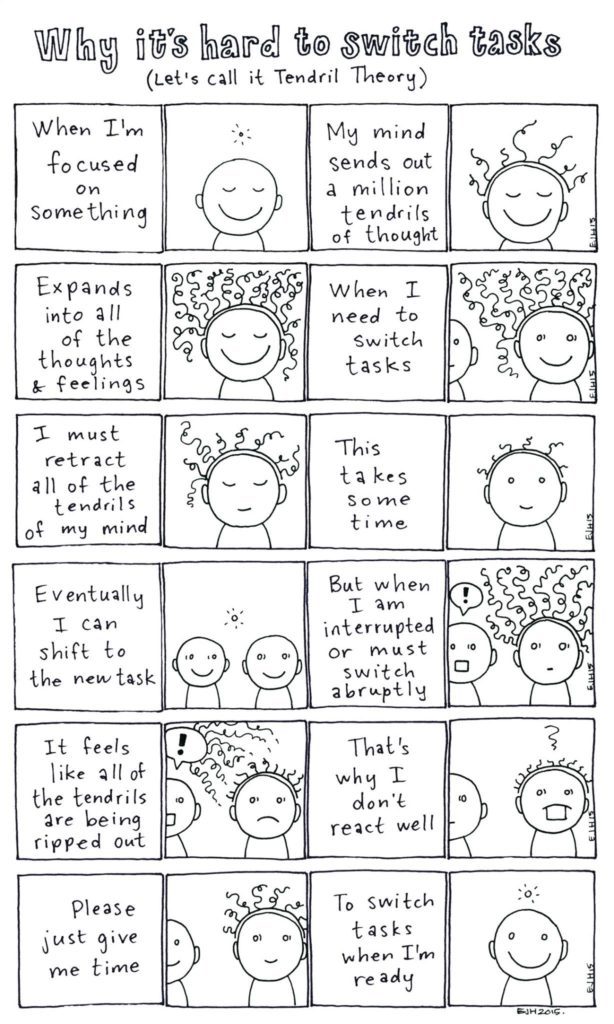
When someone interrupts us in the middle of a task we are deeply focused on, those tendrils snap, giving us a panicky, disoriented feeling. It can cause emotional dysregulation and lead to meltdowns. That’s why transitions can be so difficult for us without prior warning. Even with prior warning, transitions from one task to another, even one room to another, can be very jarring and upsetting.
This is another reason, besides sensory sensitivity, that many autistic people can become emotionally dysregulated when they receive a phone call or someone rings their doorbell.
Surprises
For many neurotypical people, a surprise birthday party is a positive and fun thing to be remembered and enjoyed. It involves friends, family, and presents. Yay!
Yikes!
For us autistics, a surprise birthday party (or any kind of surprise) has the exact opposite effect. After all, it involves friends, family, and presents. While friends and family aren’t usually an issue, suddenly being in the room with someone we haven’t emotionally prepared ourselves to be in a room with can be very disorienting and dysregulating. While a neurotypical person may enjoy a meal and music they didn’t prepare for, many autistics find this anything but fun.

And presents? While sweet and thoughtful, gift disappointment is a common issue for autistic people that can unintentionally offend neurotypical gift-givers and cause an all-around uncomfortable and unpleasant social interaction.
Unless your autistic loved one specifically indicates that they are OK with surprises, don’t surprise them (and then get hurt and offended when they don’t have a neurotypical reaction to your show of love).
Books for Better Understanding the Autistic Brain
(Whether you’re an autistic person who is newly diagnosed, or you have a loved one on the spectrum, the books below can help you better understand the autistic brain.)
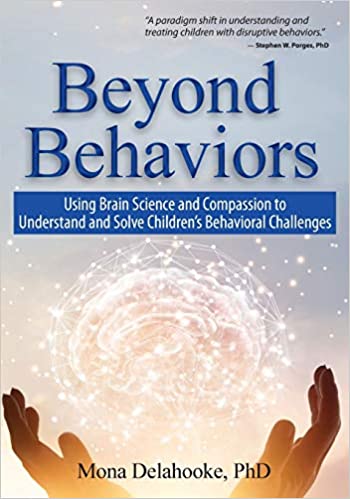
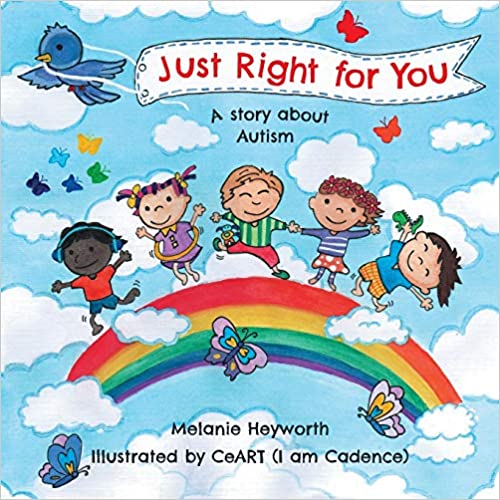
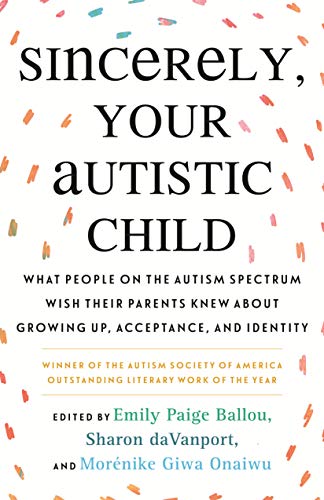
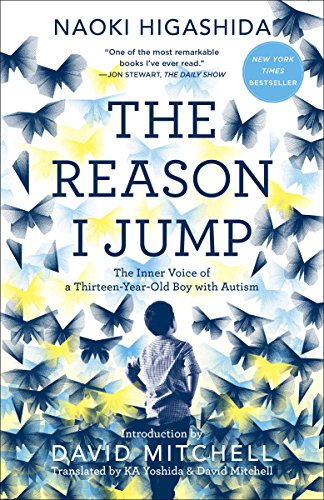
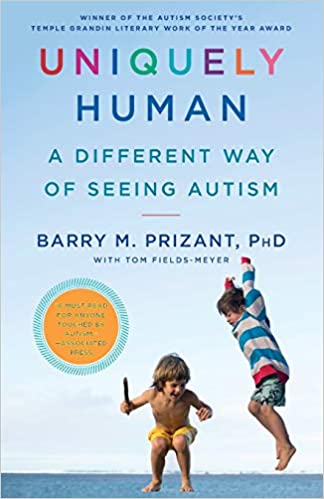







Jaime, your blog will soon be added to our Actually Autistic Blogs List (https://anautismobserver.wordpress.com/). Please click here (or on the “How do you want your blog listed?” link at the top of that site) to customize your blog’s description on the list (or to decline).
Thank you.
Judy (An Autism Observer)
I filled it out. Thank you for the opportunity!
Good article yet again! I liked the comment about rotary phones. As a child, I’d never heard one of those things until a hotel visit. They’re almost as bad as car horns. Unfortunately, knocking on the door is also sharply painful (apart from tendrils, that’s the other reason I scream at people who interrupt me by knocking) so there wasn’t a good alternative to my parents asking to enter the hotel room by ringing up.
Thank you! Yeah, rotary phones are the worst for that type of noise. Even if I hear it in old movies, I cringe. You can practically hear the darn things from space!
The information on this site, including this article, is incredibly helpful in understanding my adult autistic son. He is very verbal, but not able to express subtle or abstract thoughts.
Thank you for your insights, and for sharing.
You’re very welcome. 🙂
Thank you so much for this list. The way it is written seems to apply more to older kids & adults. But with a little tweaking it could be a great resource to help parents, loved ones & all who care to understand their autistic toddler, preschooler and young elementary school age autistic child’s behaviors.
Thank you. You’re welcome. I appreciate that. I don’t have much experience with toddlers and preschoolers, which is why I don’t usually write from that perspective, but I appreciate your comment and suggestion. 🙂
Wow, incredible weblog format! How lengthy have you ever been blogging for?
you make running a blog look easy. The full glance of your website is wonderful,
let alone the content! You can see similar: sklep internetowy and here najlepszy sklep